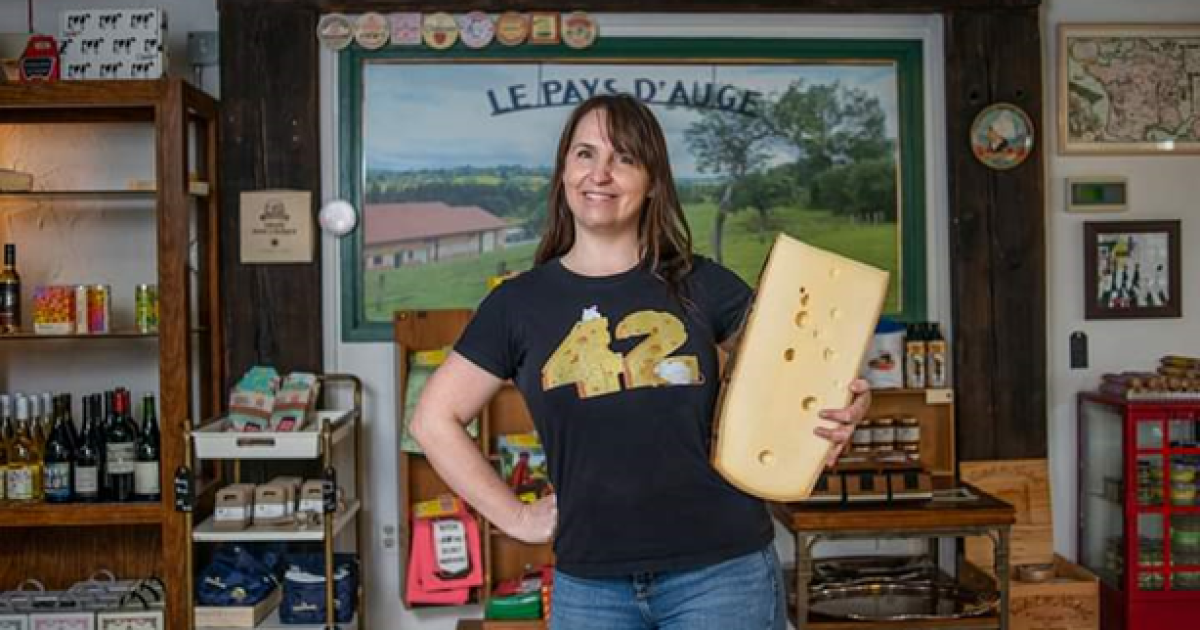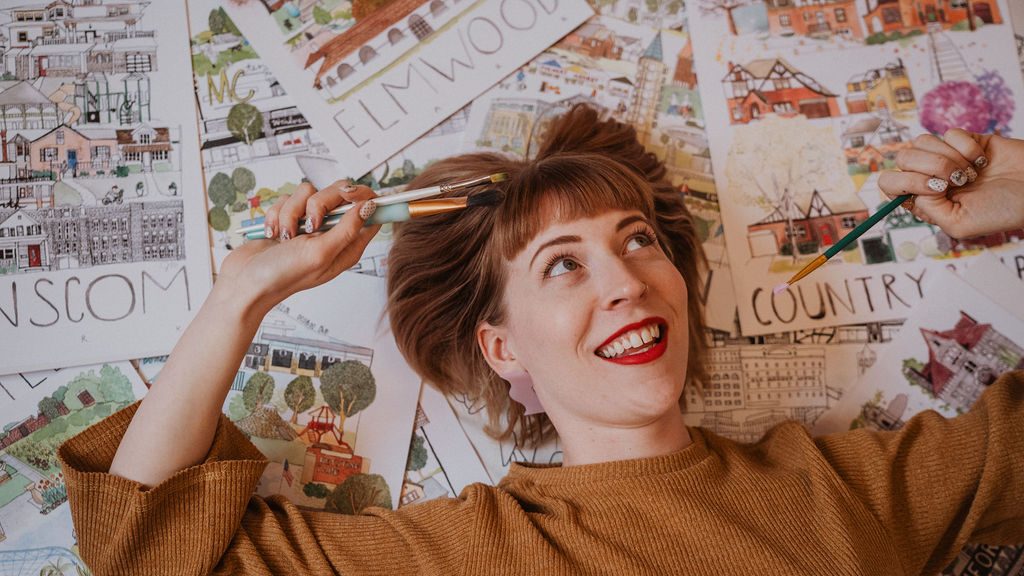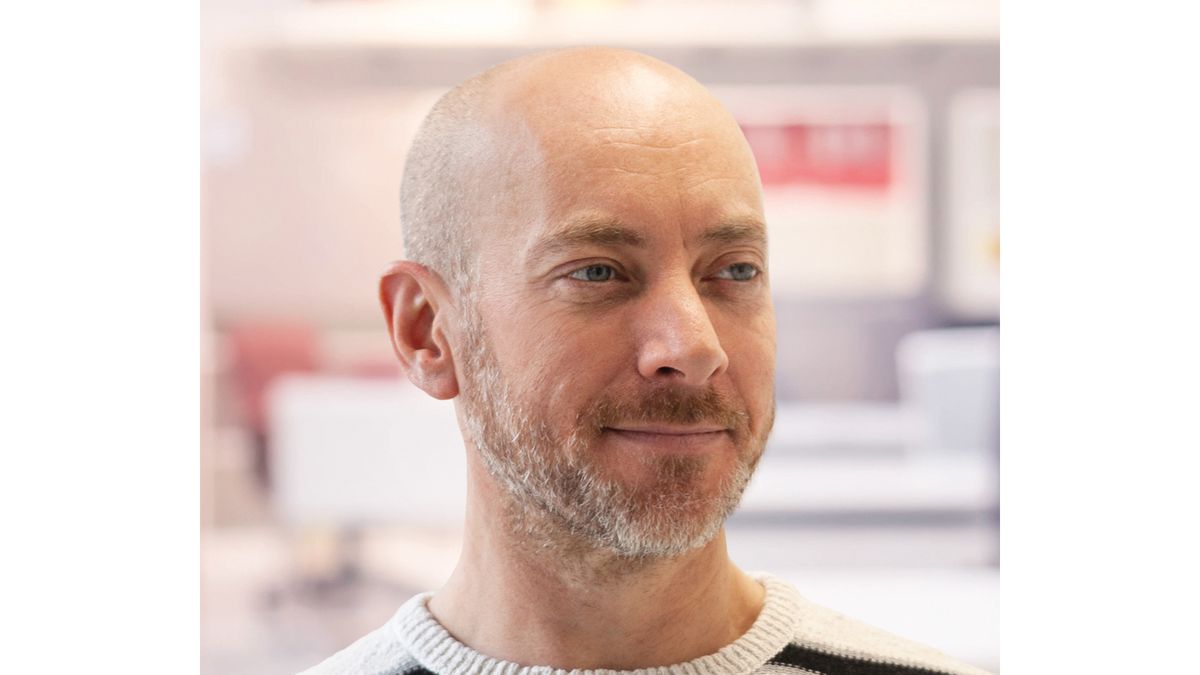



Fabian Maldonado, a welder from Odessa, Texas, started a coffee truck as a side hustle to his welding career. Despite the ups and downs of the oil and gas industry in the region, Maldonado is determined to become his own boss and make the coffee truck his full-time job. He and his wife work nonstop, with Maldonado waking up early to open the coffee truck before going to his welding job. The business is barely breaking even, but Maldonado believes it's time to leave his welding job and commit to the coffee truck full-time. However, his wife is concerned that coffee isn't ready to replace welding as a stable source of income. The oil and gas industry in West Texas attracts workers from all over, creating opportunities for up-and-coming entrepreneurs like Maldonado. During the COVID-19 pandemic, when oil production halted, unemployment in the region spiked, but Maldonado was fortunate to have a job. He purchased a used espresso machine and repurposed a trailer into a mobile coffee shop. Maldonado and his family work hard to make their coffee business a success, with every cup counting toward their dream. They are saving up and plan to commit fully to the business in the future.
Meanwhile, in Cuba, Yosvany García, a former lathe operator, has been building trailers for motorcycles and cars despite the economic crisis and widespread shortages. García and his three assistants work in a small yard using scrap metal and components found in landfills. His trailers pass technical tests and are sold at prices significantly lower than imported trailers. García's business is a testament to the resilience of ordinary Cubans in developing products despite economic challenges and supply shortages. Since the creation of small and medium-sized enterprises (SMEs) in Cuba, over 10,200 private businesses have been opened. García operates as a cuentapropista, facing challenges from Cuban and U.S. regulations. The Cuban government has warned of reviewing the private sector, and U.S. sanctions have hindered Cuban entrepreneurs from opening accounts in American banks. Despite the challenges, García remains determined to create his own private business.
In New London, Minnesota, Derek Otteson and his skilled team at Colfax Custom are reshaping the food truck industry. Colfax Custom turns neglected vehicles into vibrant businesses on wheels, offering a lower barrier to entry into the food service industry. The team produces six to eight food trucks annually, working closely with clients to turn visions into reality. Their work promotes accessible and sustainable entrepreneurship, fueling dreams and appetites alike. Otteson and his team craft food trucks and forge paths for future generations to follow. The journey of Colfax Custom encapsulates the essence of the American Dream, showcasing transformation, resilience, and the pursuit of goals against all odds.
Spencer Buck, one of the three founders of Taxi Studio, a Bristol-based design agency, recently shared insights into his day-to-day life and the challenges and successes of running an agency. Buck discussed how Taxi Studio navigated the COVID-19 pandemic and the changes the design industry has undergone over the past 20 years. He emphasized the importance of capability, chemistry, and cost in achieving business success. Buck also highlighted the value of company values and the need for greater inclusivity in the design industry. While Buck does not have a dream client, he values working with talented colleagues and clients. He expressed pride in Taxi Studio's self-published book, which commemorates the agency's 21st birthday. [34f015b8]
Spencer Falls, aka The Unlikely Florist, started a flower-arranging business out of his van in Venice Beach, California. Before becoming a florist, Falls was trying to make it as an actor in Hollywood. He lost his restaurant job and started the flower business as a means to make money. However, he soon realized that floristry was the creative outlet he had always been looking for. Falls discusses his journey from New Zealand to LA and how he turned his passion for creativity into a fulfilling career. Falls emphasizes the importance of following your heart and finding something you're highly passionate about. Watch the episode to learn more about Spencer Falls' inspiring story.
Devon Brady, a Bay Area firefighter and 20-year firefighting veteran, uses sculpting as a creative outlet to alleviate stress. Before becoming a firefighter, Brady was an artist with a dual concentration in sculpture and photography. He turned to firefighting after the economy took a nosedive and he found himself out of work. Brady believes that creative outlets are important for everyone, especially those in high-stress jobs. He has created hundreds of sculptures and has one displayed at Fairgrounds St. Pete as part of a multimedia exhibit called 'The Bait Ball.' Brady sees art as a form of prevention and a positive outlet for energy.
Eder Sanchez is a bartender at Quetzal, a Michelin-starred restaurant in Toronto. He developed an award-winning cocktail called 'No Heather, It's Heather's Turn'. Sanchez started his culinary journey by cooking for his family and then pursued cooking professionally. He worked at various establishments, including a steakhouse and a high-end Mexican restaurant, before joining Quetzal. Sanchez plans to open his own bar in the future and advises aspiring bartenders to follow their passion and enjoy practicing their craft. [4df12b00]
Julia McGuigan, an illustrator and small-business owner based in Omaha, Nebraska, plans to return to teaching while running her business. McGuigan started her business, Julia M Illustrates, in 2017 and recently opened a brick-and-mortar store in October 2022. However, due to the instability of being a freelance artist, McGuigan has decided to take up teaching to relieve some financial pressures. She will continue to sell her artwork at farmers markets during the summers. McGuigan primarily works in pen and watercolor and features people, pets, and places in her art. [91dd7aaa]
Tina Bakehouse, a business owner and farmer, finds cooking to be a creative outlet. She and her husband farm in Mills County, Iowa, growing crops and running a cow herd. Tina also runs her own communication business, Tina B., where she helps organizations and individuals improve their public speaking skills. She combines storytelling and communication to promote her clients. Tina learned to cook from her mother and grandmothers and sees cooking as a way to connect with her family and the land. She enjoys making healthy meals for her family.
Carol Rogne, a local artist and retired software founder, reflects on her success and creativity. Rogne started DFC Consulting in 1990 and ran the company for 28 years before it was acquired by Stoneridge Software in 2018. She is now the owner of Rogne Fine Art, where she creates original abstract, landscape, and figurative paintings. Rogne is a self-taught artist and combines her artistic skills with her business acumen. She is also involved in the Fargo-Moorhead Opera and Plains Art Museum. Rogne retired in 2018 and now has more time to devote to her painting. She continues to consult and volunteer her accounting services to nonprofits. Rogne believes in having a purpose and staying busy in retirement. She is focused on accomplishing her goals and making contributions to the community.
Mélodie Picard, a cheesemonger from France, started the Oregon Cheese Cave in Phoenix, Oregon in 2018 to meet the growing demand for high-quality cheese made in America. Despite challenges such as the global pandemic and a wildfire in 2020, the Oregon Cheese Cave survived and thrived with the help of Southern Oregon Regional Economic Development, Inc. (SOREDI). SOREDI provided a microloan to the Oregon Cheese Cave, allowing them to triple the size of their store, purchase new coolers, and collaborate with other local small businesses. Since its inception, SOREDI's Revolving Loan Fund (RLF) program has made over $22 million in loans to businesses in rural southern Oregon, supporting 14 new loan clients in the last year. [4b305a63]